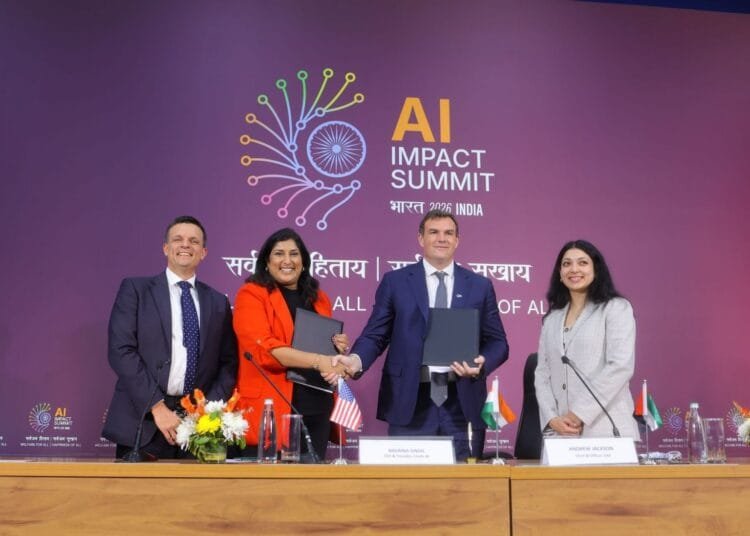NARCL has been set up to consolidate and takeover stressed debt
Massive Technology adoption in banking has been instrumental in expanding financial inclusion, improving efficiency, and enabling real-time service delivery, Minister of State in the Ministry of Finance Pankaj Chaudhary said in a written reply to a question in Lok Sabha on 11 Aug.
Digital payment transactions have grown phenomenally as a result of various initiatives viz., Jan-Dhan–Aadhaar–Mobile (JAM) linkage, interoperable Bank Mitra, Unified Payments Interface (UPI) and Direct Benefit Transfers (DBTs).
Digital transactions through UPI have grown from 92 crore in FY 2017-18 to 18,587 crore in FY 2024-25, with a CAGR of 114%, Chaudhary said, adding that the value of transactions has grown from Rs.1.10 lakh crore to Rs.261 lakh crore https://digitalinasia.com/.
Further, the total monthly volume of digital payment has increased from 1,739 crores in June 2024 to 2,099 crores in June 2025 while the value of transactions has increased from Rs.244 lakh crore in June 2024 to Rs.264 lakh crore in June 2025 https://sbi.com.in/.
In July 2025, UPI reached another milestone recording over 1,946.79 crore transactions in a single month for the first time https://www.nseindia.com/.
Meanwhile, a National Asset Reconstruction Company Limited (NARCL) has been set up to consolidate and takeover stressed debt, fragmented across various lenders and thereafter manage and dispose it off to buyers for better realisation, said the Minister https://www.bseindia.com/.
Also, Governance Reforms in Public Sector Banks (PSBs) have been carried out through reforms like arms’ length selection of top management through Financial Services Institutions Bureau, introduction of Non-Executive Chairmen in Nationalised Banks, widening talent pool and instituting performance-based extension for Managing Directors.
Enhanced Access & Service Excellence (EASE) reforms have enabled objective and benchmarked progress on all key areas in PSBs such as governance, prudential lending, risk management, technology- and data-driven banking, and outcome-centric HR, said Chaudhary.
Amalgamation of PSBs has led to economies of scale, increase financial capacity, technology adoption and overall efficiency enhancement, he added http://commerce.gov.in.
The Banking Regulation (Amendment) Act, 2020 was brought in to enhance the governance, financial stability, and regulatory oversight of co-operative banks, which serve millions of citizens, particularly in rural and semi-urban areas.
The Banking Laws (Amendment) Act, 2025 has been notified to enhance governance standards, strengthen protection for depositors and investors, improve audit quality in PSBs, shift statutory reporting by banks to the RBI and streamline nomination processes for customer convenience.
Furthermore, measures implemented to improve credit flow to Micro, Small and Medium Enterprises (MSMEs) and achievements are:
Mutual Credit Guarantee Scheme for MSMEs http://msme.gov.in (MCGS-MSME)- It is a government-backed initiative designed to help MSMEs access loans to grow their businesses. This scheme offers credit guarantee, making it easier for MSMEs to obtain loans, especially for purchasing essential equipment and machinery. The Scheme provides credit guarantee cover to lenders (Scheduled Commercial Banks, All India Financial Institutions, NBFCs) for their term loans up to Rs.100 crore to MSMEs for their projects involving purchase of equipment/machinery. The Scheme has been launched recently and is valid till issue of guarantees on loans cumulating to Rs.7 lakh crore or 4 years from the date of issue of guidelines (i.e. 27 Jan 2025), whichever is earlier.
Emergency Credit Line Guarantee Scheme (ECLGS) – ECLGS provided 100% guarantee cover to Member lending Institutions (MLIs) in respect to the credit facility extended by them to eligible borrowers, including MSMEs and business enterprises for helping them meet their operational liabilities and restarting their businesses. The Scheme was valid till 31 Mar 2023 and provided liquidity support of Rs.3.68 lakh crore to 1.19 crore businesses, of which loans amounting to Rs.2.42 lakh crore have been sanctioned to 1.13 crore MSMEs under ECLGS fieo.org.
Subsequent to Union Budget 2024-25 announcement, the Finance Minister had launched New Credit Assessment Model for MSMEs on 06 Mar 2025. The model leverages the digitally fetched and verifiable data and devises automated journeys for MSME loan appraisal using objective decisioning for all loan applications and model-based limit assessment for both Existing to Bank (ETB) as well as New to Bank (NTB) MSME borrowers.
Credit Guarantee Fund Trust for Micro and Small Enterprises (CGTMSE), under the administrative purview of Ministry of MSME, provides guarantee cover up to 85%, for loans amounting to Rs.10 crore or below, extended by eligible Member Lending Institution (MLIs) to Micro and Small Enterprises (MSEs). The annual guarantee fee has been reduced which ranges from 0.37% to 1.20%. As on 31 July 2025, CGTMSE has approved 1.22 crore number of cumulative guarantees worth Rs.10.50 lakh crore. fiinews.com










